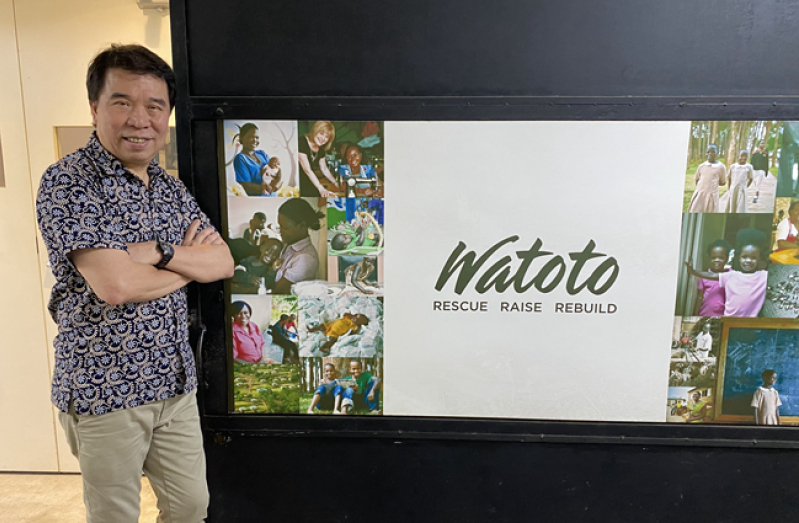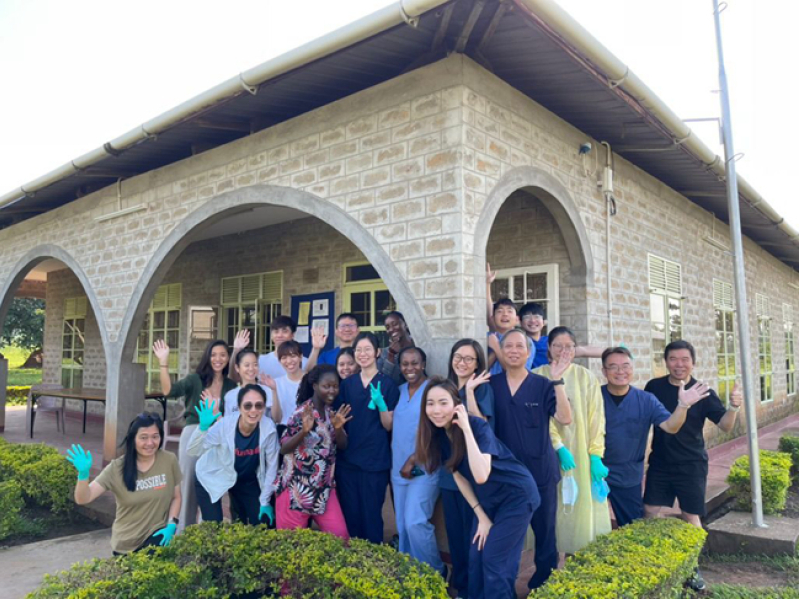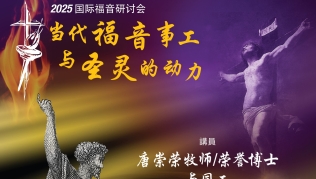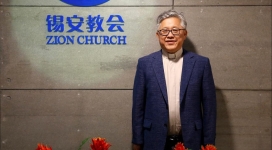
Watoto—an international Christian child-care ministry—held “Emily: A Life Story” in Hong Kong to promote its “Keep a Girl in School” poverty-relief campaign. Following the event, The Gospel Herald interviewed Rev. Samuel Cheng, the Asia Regional Director of Watoto, who shared about his remarkable journey in ministry from his Kwun Tong office.
Atheist Family Background and an Encounter with Faith
Rev. Cheng was born to atheist parents who had emigrated from mainland China to Hong Kong. He attended a non-religious school and grew up without exposure to faith.
Everything changed at age 17, when a classmate invited him to a gospel camp.
“Everyone there prayed and read the Bible together. Their kindness and warmth touched me deeply—it drew me in,” he recalled.
He could not have imagined that this warmth would later spread from his own life to Asia and even Africa.

Called at Nineteen: A Lifelong Passion for Reaching Marginalized Youth
While still in high school, Cheng began leading a youth fellowship at church. “Those young people lacked confidence, but seeing them slowly grow was indescribably joyful,” he said. “That’s when I began to sense that maybe God wanted me to use my life to influence other lives.”
Originally intending to become a social worker, he realized that pastors could care not only for people’s emotional needs but also for their souls. At 19, he entered the Assemblies of God Theological Seminary to study for a Bachelor’s degree in Biblical Studies—marking the start of his full-time ministry journey.
After graduating in 1991, he founded the Truth Worship Center, a ministry focused on marginalized youth—students and working-class young adults facing poverty, addiction, and crime.
“Many lacked direction and confidence. I helped them rediscover purpose, encouraged them not to fear failure, and gave them a sense of care and safety. The most moving thing was seeing their lives transformed by Christ—watching them grow up, start families, and even bring their children back to church.”
From Serving Hong Kong Youth to Caring for African Children
In the early 1990s, Cheng co-founded the Cell Church Mission Network, dedicated to promoting missions. During a two-week short-term mission to Mindanao, Philippines, he witnessed Christians boldly sharing the gospel among Muslim communities, planting churches, and even welcoming Muslims into their homes.
“It opened my eyes to how vast the needs of the world are,” he said. From then on, he saw missions as God’s calling for the church. His church later sent missionaries to India and other regions.
In 2005, the network hosted a missions conference and invited Pastor Gary Skinner, founder of Watoto Church in Uganda, to share. Established in 1994, Watoto operates as both a church and charitable organization, serving orphans, widows, and vulnerable children through sponsorship programs, children’s villages, and an agricultural university.
“Pastor Skinner emphasized holistic ministry—caring not only for people’s faith but also for their health, community, and education. That opened my eyes,” Cheng said. “God cares about the whole person, and the church should engage in whole-person education.”
Afterward, Cheng began working with Watoto, coordinating African children’s performances in Hong Kong and visiting Uganda with pastors. Witnessing the severe poverty and orphan crisis firsthand—teen pregnancies, abandoned babies, and unsafe abortions—strengthened his missionary calling.
Leading Watoto Asia: Teaching to Fish
When Watoto established its Asia Regional Office in 2008, Rev. Cheng was appointed Director, overseeing ministries in Hong Kong, Japan, Singapore, and Malaysia, and advocating for Watoto’s African work. He has since led children’s choirs on tours across Asia, helping audiences move beyond stereotypes of Africa as a land only of hunger and hardship, revealing instead its beauty and hope.
Watoto currently operates three children’s villages in Uganda, caring for over 3,500 orphans under the nurturing care of local “mothers.” Many children have broken the cycle of poverty—one girl who once worked in a quarry is now studying law to defend women’s and orphans’ rights; another runs her own bakery; and a once-impoverished boy now works in broadcasting after graduating from film school, spreading messages of hope in the recovering city of Gulu.
“The best kind of poverty alleviation,” Cheng explained, “is not only giving a fish but also teaching how to fish.”
In addition to fundraising, Cheng’s team spent eight years raising support for and helping establish an Agricultural and Entrepreneurship Institute in Uganda, in partnership with a U.S. agricultural university. On its 400-acre campus, students are trained to use modern farming technology and help nearby farmers transform their livelihoods—changing the notion that “farming means backwardness.” The first class of 15 students will graduate next year.
Life Education that Transforms Students
A major focus of Cheng’s work is promoting life education among young people. He personally visits schools, leading seminars with African children and singers who share their life stories at elementary schools, secondary schools, universities, and churches.
These encounters help students reflect on the value of life and cultivate empathy for the underprivileged. Some are so inspired that they join mission trips to Uganda themselves.
Watoto also sends at least five volunteer medical teams to Uganda annually—many of which include students.
“They not only broaden their horizons,” Cheng said. “They hear firsthand how people overcome poverty, and they witness the harsh realities of life in the slums. It shocks them—but also moves them deeply to see such resilience. Many come to faith through this experience.”
He added with gratitude, “For many young people, witnessing life in Africa gives them a profound awakening about life, purpose, and calling.”
A Lifelong Calling
Since first encountering Watoto, Rev. Cheng has served in African ministries for 19 years, his passion for youth unwavering.
“The true essence of life education,” he reflected, “is not one-way teaching, but helping young people discover meaning and direction through real experiences of service.”




![[Exclusive] Watoto Asia Director Rev. Samuel Cheng: Bringing Life-Changing Education from Africa!](https://www.gospelherald.com/media/cache/thumbnail/7/23/72332sp_273w_150h_1x_1y.jpg)


